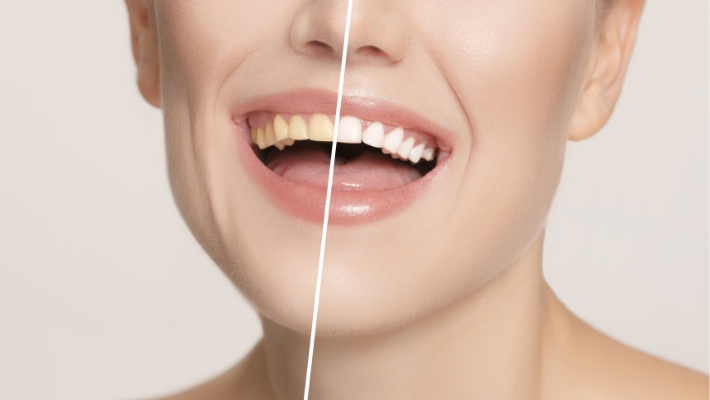A smile is often considered a major asset in social interactions. A bright smile can not only improve a person's physical appearance, but also have a significant impact on their self-confidence and psychological well-being.
Strengthened Self-Confidence
Teeth whitening can play a crucial role in improving self-confidence. Whiter teeth are often associated with health and youth. As a result, people who have undergone tooth whitening may feel more comfortable when smiling, which may encourage them to interact more frequently and freely with others.
Positive Social Perception
Social perception is also influenced by the appearance of teeth. White, well-maintained teeth can suggest that the individual values personal hygiene and appearance. This can lead to positive judgments from others, thereby strengthening social and professional interactions.
Reduction of Social Anxiety
For those who are conscious of the color of their teeth, teeth whitening can reduce anxiety about appearance. This can be especially beneficial for people who have to speak in public or who regularly attend meetings or social events.
Mood Improvement
A bright smile can also improve mood. The simple act of smiling activates the release of neurotransmitters, such as dopamine and serotonin, which are associated with happiness and stress reduction.
Tooth whitening offers several psychological benefits that go beyond pure aesthetics. It can contribute to a better self-image, improved social perception, reduced anxiety, and a generally more positive mood.
 Français
Français
